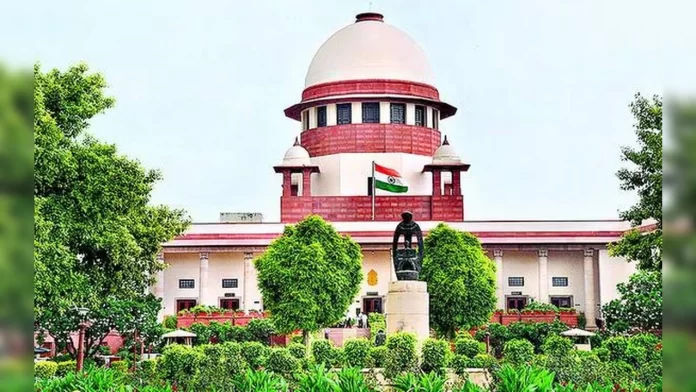SC Directs NTA: Centre-Wise NEET UG 2024 Results: Chief Justice D.Y. Chandrachud’s Division Bench heard numerous petitions today that sought to retest the Undergraduate National Eligibility and Entrance Test for 2024 (NEET UG). By 12 p.m. on Saturday, July 20, 2024, the bench ordered the National Testing Agency (NTA) to release the findings of each candidate broken down by centre.
According to the petitioners in the lawsuit, there was a question paper leak that resulted in 61 pupils getting perfect scores on the test, which was not conceivable considering the exam’s marking system.
The document leak was previously acknowledged by the Court as a “undisputed fact,” but it was also said that a retest would be the final option and that a judgement on it could only be made after determining how widespread the breach was. The National Testing Agency (NTA), which administers the NEET exam, was ordered by the Court to submit exam details by July 8, 2024. The leak is presently being looked into by the Central Bureau of Investigation (CBI).
Since there were no significant anomalies discovered, the NTA and the Union declared that a retest was not necessary. They made use of an Indian Institute of Technology Madras (IITM) data analytics report. The report from IITM gathered and examined information on several aspects of the test, including each candidate’s exam scores. The top 100 applicants who had the highest exam scores were also broken down by city and centre in the data.
Senior Advocate Narender Hooda began the petitioners’ opening remarks at the hearing today by stating that they were not able to access a significant portion of the CBI’s compilation of data. The bench responded by stating that although this was not a “sealed cover” probe, the investigation would be impacted if the CBI material was made public at this time.
Additionally, the petitioners claimed that an inaccurate picture was presented in the IITM study. Solicitor General Tushar Mehta represented the Union government and Senior Advocate Naresh Kaushik represented the NTA, both of whom insisted that the IITM report was trustworthy.
The bench made a significant effort to comprehend the information gathered by IITM. The following is an overview of some major points raised by the bench:
- In all, 23,33,000 students took the 2024 UG NEET exam.
- In both government and private colleges, the maximum number of students who can be admitted through NEET is 1,08,000.
- There are 52,000 seats available in private institutions and 56,000 seats in government colleges.
- There are now 38 petitions for a retest before the bench, with 131 petitioners in all.
Mehta clarified that the 1,08,000 students who were allotted seats did not include the 131 petitioners who were requesting a retest. Additionally, he told the court that roughly 254 admitted candidates had submitted Interim Applications objecting to a retest. Additionally, several petitioners who met the requirements requested a retest.
Petitioners: The information in the IITM report is inaccurate
Hooda first claimed that the anomaly in the exam was not sufficiently detected by the data charts created by IITM. According to him, the chart includes every one of the 23,33,000 pupils who took the test this year. With thousands of students represented by each dot on the graph, this data collection was far too large. He said that this sizable data collection was insufficient to capture the finer details or anomalies in the data.
According to Hooda, the sample pool should have consisted of just the 1,08,000 students who were chosen, not all 23,33,000 students who took the exam, in order to more precisely assess the irregularity. Additionally, a comparison between the data from this year and 2022 and 2023 was required.
The top 100 candidates with the highest scores are displayed, together with city-specific information, in the second chart created by the IITM. Hooda argued that because the data only included information on 17 pupils, “it is not complete.” He maintained that eight or nine pupils were chosen from the same centre in some cases.
Interjecting to let the bench know that the data for all 100 contestants was in fact available was Solicitor General Tushar Mehta. He declared that the statistics did not show any unusual concentration of candidates from a single city. Twelve states and one Union Territory comprised the top 100 contenders. Rajasthan had the highest percentage (19). Gujarat and Karnataka came next, with seven each, and Maharashtra with twelve.
The flawless result
The petitioners further brought to the Court’s notice that 61 students from all over India had achieved a perfect score of 720/720 in this year’s exam. Since it was impossible to receive a perfect score, this was evidence of a “systemic failure” in the way the exam was administered. There is a negative marking system for the NEET UG exams.
However, the NTA retorted that, in accordance with the NTA’s answer reference sheet, 44 of these 61 pupils received grace marks despite having answered a question incorrectly. This is a result of the candidates’ flawless responses to the questions based on the NCERT textbooks.
The Chief said later in the hearing that the outcome for the remaining 17 candidates who received a flawless score will determine the magnitude of the leak.
The “exponential growth” in grades attained
One of the petitioners’ most important findings was that all pupils’ grades had increased exponentially overall.
- On its part, the NTA claimed that there were two primary causes for this:
- The syllabus for this year was reduced by 22–25%.
Since more students took the tests this year than the previous, the average score was unavoidably higher.
Hooda retorted that the NTA had neglected to reveal the fact that some topics, such as physics and chemistry, had expanded in scope. He declared, “There is not a whisper” coming from the NTA on this.
Hooda cited annual data from 2021 to illustrate that while the number of applicants taking the NEET exam increased year after year, it did not jump in 2024. After performing a fast mental calculation, Chief Justice Chandrachud stated that there was an annual increase of 32% on average.
Several windows for newly installed apps
The bench carefully asked questions regarding the processes at different stages in an effort to determine the exact amount and nature of the leak.
It turns out that the initial application period for the 2024 NEET UG test took place in March 2024 over two days. However, another window was opened from April 11 to April 15. According to the NTA and the Union, this window was opened in order to implement a Rajasthan High Court judgement. But the petitioners said that the ruling of the High Court only applied to one candidate, who was permitted to reapply. That lawsuit involved fees that were not paid.
On the other hand, the NTA let everyone back in. After the bench inquired, it was discovered that 15,085 more students applied for the test during this time. Out of them, forty-five qualified for the final pool of 1,08,000 chosen students.
Aside from this, candidates have a two-day window in which to edit their application materials. How many applicants switched exam centres during this window was a question the bench asked. The candidates were notified by Mehta and Kaushik that the centres allotted to them were computer-generated and could not be altered at the request of the applicant. Only changes to the exam city, not the individual centre, could be requested by applicants during the rectification session. The applicant’s permanent location or place of residence determined whether this request was approved.

































